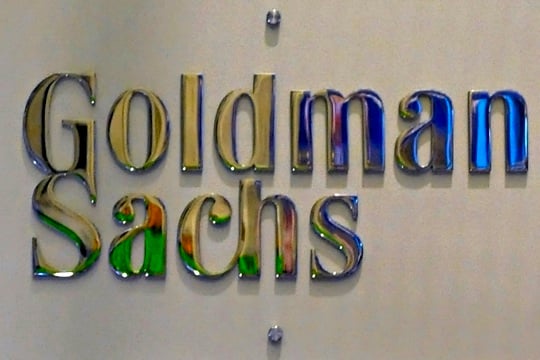Goldman Sachs boss Lloyd Blankfein is testifying in Congress today. Yesterday, a Senate panel released Goldman e-mails that may not enhance the firm's reputation with some clients
Newly disclosed Goldman Sachs Group Inc. internal e-mails cast light on how the investment bank devised collateralized debt obligations -- investment vehicles with innocuous names such as Timberwolf, Hudson Mezzanine and Abacus. Abacus is at the center of a U.S. Securities and Exchange Commission fraud lawsuit.
“Boy that timberwo[l]f was one shi**y deal,” Thomas Montag, the former head of sales and trading in the Americas at Goldman Sachs Group Inc, said in a June 22, 2007, e-mail to Daniel Sparks, who ran Goldman Sachs's mortgage business at the time. Within five months of Timberwolf Ltd.'s debut, the CDO had lost 80% of its value, and it was liquidated in 2008, according to the Congressional panel.
The excerpt from the email sent by Montag -- who is now Bank of America Corp.'s president of global banking and markets -- was released yesterday by Senator Carl Levin, the Michigan Democrat who leads the Senate's Permanent Subcommittee on Investigations. The panel claimed that Goldman 'in many cases' bet against the performance of assets comprising the CDOs.
Indeed, the e-mails also show employees discussed which outside firms would be “easiest” to work with while creating the now-infamous Abacus CDOs -- a product apparently designed to bet against the housing market.
The e-mails were released as the panel prepares to question seven current and former executives at Goldman Sachs, including the firm's CEO Lloyd Blankfein.
In one internal message, a Goldman Sachs worker asked which outside firm would most likely approve assets that hedge fund Paulson & Co. wanted to include in a CDO and bet against.
“The way I look at it, the easiest manager to work with should be used for our own axes,” the author wrote in December 2006, using industry jargon that can refer the firm's financial interest in a deal. The writer also expressed concern that two firms being considered weren't likely to sign off on Paulson's suggested assets. “They will never agree to the type of names [P]aulson want to use[.]”
The Senate committee's investigators have pored through about 2 million Goldman Sachs documents as lawmakers prepare to question Chief Executive Officer Lloyd Blankfein, 55, and six other current and former employees. They include Fabrice Tourre, the banker at the center of the SEC's complaint.
In one e-mail, Tourre emphasized the firm should focus on serving Paulson to reap greater profits.
“We need to be sensitive of the profitability of these trades vs. profitability of abacus,” Tourre wrote in one e- mail, according to a copy released by Levin. “We should prioritize the higher profit margin businesses with Paulson.”
The e-mail about picking the easiest manager was part of an exchange with Tourre, according to a list of exhibits released by the lawmaker. The author wasn't identified.
In another December 2006 e-mail, Tourre discussed other business opportunities for Abacus, outlining a strategy in which Goldman Sachs would “‘rent our Abacus platform to counterparties” that wanted to short the market. Levin claims the messages show “Goldman repeatedly put its own interest and profit ahead of the interests of its clients.”
While his committee isn't responsible for determining whether there was any criminal activity, it will decide after the hearing whether to refer the matter to the SEC or the Justice Department.
The SEC sued Goldman Sachs on April 16, claiming the New York-based bank misled investors about the role Paulson played in assembling an Abacus CDO and the fund's intent to bet that its underlying assets would lose value. The hedge fund, run by billionaire investor John Paulson, wasn't accused of wrongdoing.
Goldman Sachs is fighting the SEC's claims, which it says are “unfounded in law and fact.” In prepared testimony for today's hearing, Blankfein said the firm didn't bet against clients and didn't “make a massive short” against the housing market.
But Sen. Levin says the CDO was among securities that Goldman Sachs sold to clients after deciding the New York-based firm needed to reduce its mortgage holdings.
The Timberwolf CDO was issued in March 2007, following a Goldman Sachs quarter that ended February 2007 in which one department of the bank shifted from $6 billion of bets that mortgage bonds would perform to $10 billion they would default, according to Bloomberg data and information the panel released.
Bear Stearns Asset Management, the manager of two hedge funds whose collapse in June 2007 roiled global markets, was among the buyers, purchasing about $300 million, according to the committee.
According to another internal e-mail, the Goldman trader responsible for managing Timberwolf's issuance characterized the day that the CDO was created as “a day that will live in infamy.”







